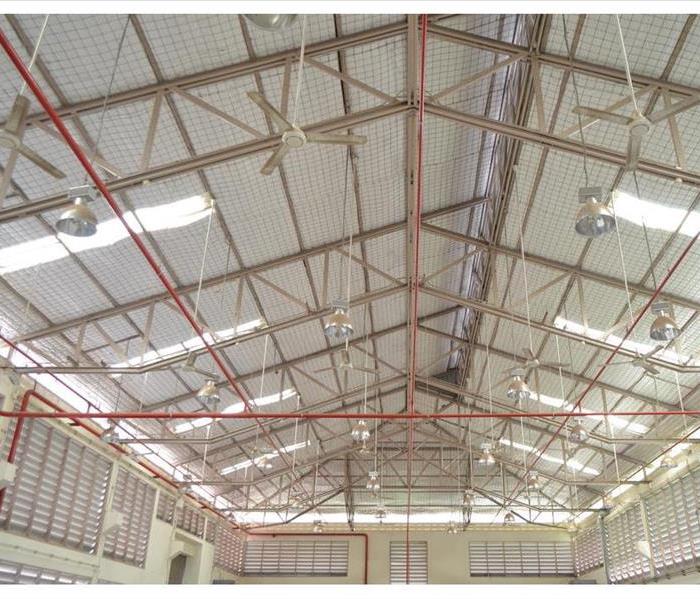How Can You Be Certain Your Commercial Fire Sprinklers Are Ready?
12/28/2020 (Permalink)
A fire sprinkler is the most effective means of protecting life and property in buildings. They’re so effective, one study in Texas found they literally eliminated deaths from commercial fires when properly maintained.
But what does it mean to maintain them? It can be a little confusing. Fortunately, the National Fire Protection Association has an easy-to-understand rulebook for this, called NFPA 25.
What Is NFPA 25?
NFPA 25 is the internationally recognized standard for fire sprinkler maintenance and testing. It lays out fire protection system requirements and details for the following mandatory sprinkler system inspections:
- A simple weekly one
- An in-depth monthly one
- A quarterly inspection and test
- A yearly inspection and test
- A 5-year complete system inspection
Can I Do My Own Inspections?
Generally, you can do weekly inspections in-house. However, all other inspections require certification in fire suppression system maintenance and repair. Columbia, TN, has strict rules about who can perform inspections. The sprinkler system not only protects the business, but it also protects surrounding structures and the lives of everyone inside. Plus, it reduces insurance claims, so it’s crucial that they be independently tested.
What’s Involved in Each Inspection?
The weekly inspection that you can perform just looks for anything obvious that’s wrong, such as items stacked too close to sprinkler heads or leaks in the system. You can find a simple list here.
The monthly fire sprinkler inspection inspects gauges, alarm valves and all the piping to ensure nothing looks out of place. The quarterly one involves some basic pressure switch tests, a thorough inspection of the risers, and a review of the required system documentation.
The annual and 5-year inspections cover the entire system and spare parts you’re required to carry. The 5-year one will also test the pressure of your system and the accuracy of the gauges.
The good news is that, when well-maintained, your sprinkler system will unlikely ever have an accidental discharge. The bad news is that if it does, you’ll have a fire sprinkler cleanup to deal with. This is covered by insurance, so have restoration professionals inspect the damage and begin the cleanup process.


 24/7 Emergency Service
24/7 Emergency Service
